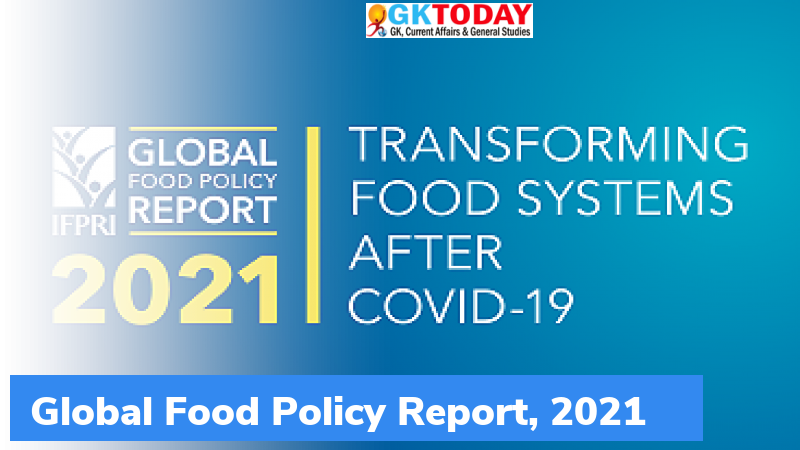2021 Global food policy report
The Global Food Policy Report is published by the International Food Policy Research Institute. This year the institute has released the report based on the theme “Transforming Food Systems After COVID-19”.
Key Findings of the report: India
- The lockdown imposed due to the COVID-19 crisis closed schools and day care centres. This affected the availability of nutritious perishable food products. Several households shifted from expensive nutritious foods such as fruits and vegetables towards cheaper staple foods.
- The midday meal programme of India that covers 80% of primary school age children in the country was affected due to the COVID-19 lockdown. The school closures are likely to exacerbate nutrition and food insecurity in the country especially in girls and disadvantaged population.
- 50% of households in India reported that women spent more time in fetching firewood and water in comparison with the previous year.
- Efforts of India to incorporate migrant workers into social protection programmes was a huge success.
- Around 80 million hectares of land in India have been classified as commons. This included forest, water bodies, and pastures. The Commons provide source of livelihood for more than 350 million people in the country. They are dependent on these areas for their forest products and fodder.
Recommendations
- The governments should use global events such as COP26, UNFSS (United Nations Food Systems Summit) and Nutrition for Growth Summit to put food system transformation rightly on the development agenda.
- The resilience for all food systems should be increased.
- The flexibility of social protection policies to protect the vulnerable population during the time of health crisis should be expanded.
Key Findings of the Report: World
- Around 95 million people, mostly in Africa are living in extreme poverty.
- Number of poor people living under poverty are to increase by 150 million as compared to the pre-pandemic levels.
- Women accounted to 39% of employment globally. However, they incurred 54% of job losses during pandemic.
Month: Current Affairs - April, 2021


